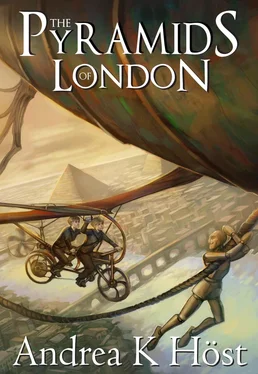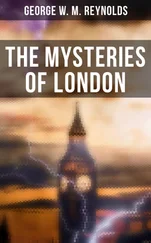Rian ducked her head as they wafted inside, and found herself intensely glad that Makepeace was not there to know her feelings, to look at her and see her excitement. What did it say about Rian that she was so enormously aroused by the display , by the sheer power of the Sulevia Sceadu? Rian did not know whether to be entertained by herself, or embarrassed.
“I do not see what it is that makes you less than an artist.”
Wrenching her thoughts back to less exciting paths, Rian saw that the Crown Princess was still holding the sketches of Lyle and Lynsey Blair. The question at least was a familiar one, and she used it to pull herself together, to shrug lightly, as she had so many times before.
“I could bore you with a long monologue on the nature of art, but the short answer is that I grew up thinking that I was an artist, and spent many years diligently training my skills, because it never occurred to me to be anything else. When I eventually realised that the whole of my motivation revolved around my parents, and none of it for the work, I gave it up.”
“You do not miss it?”
“Not particularly. It’s not as if I swore never to pick up a brush again—I help one of my cousins painting theatre backdrops whenever I visit Lutèce. I’ll draw something if I particularly want to remember what it looked like. But I don’t…” She paused, pushing aside an impulse to explain properly. “I treat it as a craft. A semantic quibble, perhaps.”
Princess Aerinndís had crossed to the workbenches, which fortuitously were no longer strewn with studies of her young sister. Instead it seemed that Eleri had at last started work on Eluned’s replacement arm. She had shaped the forearm from a length of dark wood, and all the small joints of the fingers had been laid out, leaving a gap for the back of the hand.
“Did you consider your brother an artist?”
“Oh, yes. I hope we recover this missing automaton. His work was always beautiful.”
“And the girl who is making this? Is she an artist?”
Rian was becoming amused. “Eleri’s drive seems to lean to the science behind the process, but yes, I would call her one. The work I’ve seen of hers is very stripped back, but there’s a certain spare elegance that she strives for. Does it offend your sense of what is correct, Highness, that I choose not to name myself an artist?”
“It concerns me that the new Keeper of the Deep Grove may be so fractured within herself that she will fail in her duty.”
This was a large leap into the unexpected. “My duty being considerably more than opening a gate every twenty-five years?”
“The service of the Keeper is Cernunnos’ contribution to the Treaty of the Oak,” Princess Aerinndís said. “You are the second to hold the position since the Trifold Age began. Comfrey is dragging his feet in acknowledging that because you represent the beginning of his end, but avoiding change will not alter the fact that Prytennia’s defences now involve you. The foreseeing was an immediate acknowledgement, as much as we have attempted to downplay it. Having taken on this duty, you must do everything you can to prepare for it.”
Rian frowned at her, bemused. “By facing my own failings?” she guessed.
“There are attacks a sword cannot defend against.” The Crown Princess had found herself a chair, her habitually upright posture giving her the manner of a strict teacher waiting to hear a student’s excuses.
Since Aerinndís Gwyn Lynn was all of twenty-three, Rian was not entirely certain she cared for the image. But this, for all she’d been run into the choice with no preparation, was part of what she’d agreed to by giving her allegiance to Cernunnos, and so she set herself on the nearest trunk and approached the question seriously.
“I can’t say I’ve ever thought of myself as fractured,” she said. “Resilient, yes. Not broken. I don’t consider my relationship to art to be some unhealed wound, but a reflection of the environment in which I was raised.”
“Child of famous parents?”
“A house where art was venerated. Not that that was necessarily a bad thing, and my parents were very supportive of me doing whatever I wanted. Naturally, what I wanted was to be like them, to do the things that they valued. It did not come so easily to me as it did to Aedric, but technique is something that hard work can address, and so I worked very hard indeed. I made considerable progress, and my parents were proud of me.”
“And then?”
“That’s where we get to the discussion on what is art. My parents’ house overflowed with guests, students, patrons and petitioners. These last, I soon learned, were pitiful creatures who produced ‘daubs’, or were derivative, or had nothing to say. They would come wanting to be taken on as students.”
“My father was quite open in his scorn. To him there was nothing worse than the deluded, the pretenders. My mother would allow anyone to show her their work, and would offer constructive advice. And my father would give her a questioning look after she left them, and she would give the tiniest shake of her head.”
“I was a little too young for such dismissal, of course. I’m not certain if anything would have been different if she hadn’t died when I was fourteen. Perhaps she would have found some way to direct my energies elsewhere. As it was, she died and I fumbled about trying to understand the family finances—I fortunately have always found numbers easy to get along with—and then I threw myself back into the next important step in living up to her legacy: developing my own style.”
“The difference between derivative and worthy?” The Crown Princess was listening with solemn attention, a single owl drifting in a tight circle above her.
“You don’t advance anything copying other people, and if you’re not trying to reach, to transfigure, to say something, to realise a goal beyond an image…then all you are doing is producing daubs.” Rian shook her head. “Which is in itself a rather limited view of art, but it is what I was drowning in.”
“My father had not coped well with Mother’s death, and his anxiety about me leaked through, though he tried very hard to be encouraging. Some of his visitors were less careful, and I worked myself to the bone to prove them wrong, to make the breakthrough I kept telling myself was inevitable. And then my brother came home from university with Eiliff Tenning.”
How nervous and proud Aedric had been! And her father had revived for a while, become more like his old self.
“Eiliff gave me a great gift. She was quite a brilliant person, you know. Prytennia really suffered a loss with her death. I admired her immensely, and she tried to have a conversation with me about something other than art.”
Rian blushed. She felt the heat rise up, as scorching as it had been that day.
“I attended a village school. And back then the law only required attendance until you were twelve. Even when I was there, I did nothing but draw, and the teachers encouraged this because I was Charlotte Seaforth’s daughter, and of course I would earn my living through art. I could barely read.”
“What was the gift?”
“Incredulity. Eiliff, who was a rather blunt person, tried very hard not to gape at me in disbelief. She valued art—and had a good eye for it—but she also venerated knowledge, and believed in… contributing , in working toward the betterment of the world. She thought me selfish for spending my time painting when I was not producing something of worth, and she did not hide that she believed I should redirect my time toward being what father termed a ‘devotional’—someone who, lacking the capacity themselves, centred themselves around the valuable work of others. I didn’t care for that idea at all, but the strength of her reaction forced me to look at myself from the view of someone other than my parents. And I kept looking long after her visit. All that time trying to reach without copying, trying to express something ineffable, and the problem was I had nothing to say. I had no passion for the work, let alone its subjects, and no goal beyond my parents. I stopped trying to make myself into an artist to give myself a chance to be me.”
Читать дальше




![Андреа Хёст - Snow Day [Touchstone - Extras]](/books/404760/andrea-hest-snow-day-touchstone-extras-thumb.webp)







